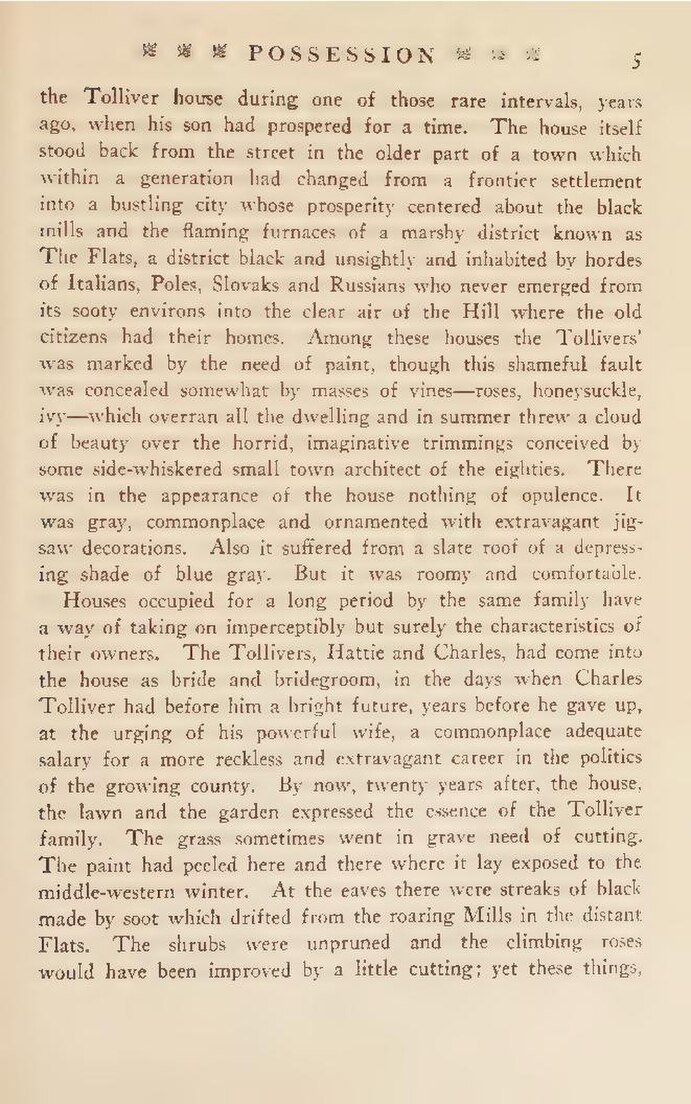the Tolliver house during one of those rare intervals, years ago, when his son had prospered for a time. The house itself stood back from the street in the older part of a town which within a generation had changed from a frontier settlement into a bustling city whose prosperity centered about the black mills and the flaming furnaces of a marshy district known as The Flats, a district black and unsightly and inhabited by hordes of Italians, Poles, Slovaks and Russians who never emerged from its sooty environs into the clear air of the Hill where the old citizens had their homes. Among these houses the Tollivers' was marked by the need of paint, though this shameful fault was concealed somewhat by masses of vines—roses, honeysuckle, ivy—which overran all the dwelling and in summer threw a cloud of beauty over the horrid, imaginative trimmings conceived by some side-whiskered small town architect of the eighties. There was in the appearance of the house nothing of opulence. It was gray, commonplace and ornamented with extravagant jig-saw decorations. Also it suffered from a slate roof of a depressing shade of blue gray. But it was roomy and comfortable.
Houses occupied for a long period by the same family have a way of taking on imperceptibly but surely the characteristics of their owners. The Tollivers, Hattie and Charles, had come into the house as bride and bridegroom, in the days when Charles Tolliver had before him a bright future, years before he gave up, at the urging of his powerful wife, a commonplace adequate salary for a more reckless and extravagant career in the politics of the growing county. By now, twenty years after, the house, the lawn and the garden expressed the essence of the Tolliver family. The grass sometimes went in grave need of cutting. The paint had peeled here and there where it lay exposed to the middle-western winter. At the eaves there were streaks of black made by soot which drifted from the roaring Mills in the distant Flats. The shrubs were unpruned and the climbing roses would have been improved by a little cutting; yet these things,
